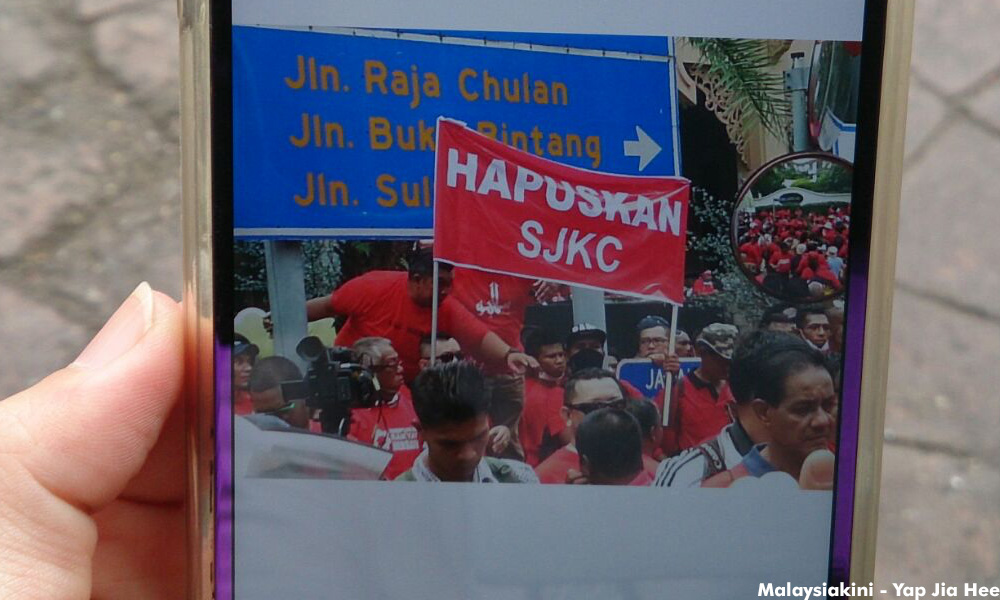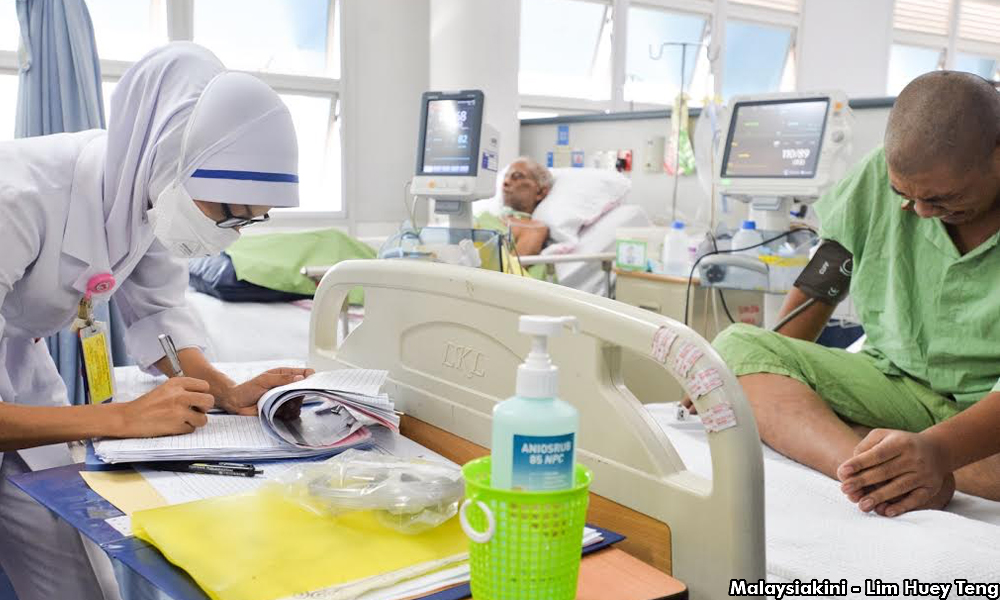“They also have to start thinking about how, for instance, they distribute that tax revenue so that more of it can come to public health, education and other public goods which we should prioritise.”
- Health Minister Khairy Jamaluddin
With political instability engulfing the country, it is easy for one to miss the moves made by Health Minister Khairy Jamaluddin.
As one of the few ministers who seem to be focused on governing, Khairy has ambitious plans for the healthcare system of this country and genuinely seems interested in moving the healthcare conversation beyond the status quo.
The problem I have with these types of conversations is that it ignores the fact that the system – a Leviathan – is mired in racialism, toxic religiosity, corruption and of course indifference, which trumps any kind of egalitarian reform.
Khairy (above) is right in saying that the Health Ministry’s power needs to be decentralised – like everything else in this country – but the system is predicated on the political elite and their cronies making money off the system and whatever function of that part of the system is merely a byproduct.
I am one of those people that believe that healthcare is a human right. I believe that this is one of the areas where our tax ringgit could be put to the best use, together with education. But what are the priorities of our successive governments?
We had billions of ringgit poured into the religious bureaucracy, the sole function of which is to hamper reforms in favour of regressive ideas which have divided the people of this country. This also includes public health policies, not to mention health policies for marginalised groups.
So, how exactly are public health officials going to be social justice warriors when the racial and religious policies in this country divide the country along the said lines, with each attempting to defend the boundaries against intrusion?
I agree that public health officials should be “busybodies” but how are these people going to demand “clean water, clean air and access to education because all of these things have an impact on health outcomes” when those things are determined by policymakers who consider themselves Malay first, not to mention dealing with a system of indoctrination where public health officials come from?

How do you demand equal access to public education when we have government policies which determine quota systems and deal with vicious political fights about funding and providing government scholarships?
Do you think any public health official would want to have that conversation?
Good people vs corrupt system
To be fair, as someone who benefits from the public healthcare system, anecdotally speaking, there are many doctors, nurses and healthcare professionals from various races who take their job and healthcare seriously.
They want to do good and honest work in our public healthcare system but they are hampered by a political system that rewards incompetence and corruption.
Yes, we should prioritise healthcare and education but who exactly are we doing this for? The political elites in this country divide us by race and religion and formulate policies based on these criteria.
So how exactly do some things like healthcare and education, which have been politicised, become that principle that we can all agree with regardless of race or religious affiliation?
Not only that but class also determines the level of healthcare available and again, the majority are “penalised” because more often than not, especially in rural areas, they are short-changed by the Leviathan which has no problem building numerous mosques and funding religious schools but has no interest in providing quality healthcare.
An activist doctor, who read my objections to the generational smoking ban, angrily confronted me about why I was not taking the issues seriously.
Here is the thing: Before we start talking about possible fascist policies, why not tackle those long-standing issues when it comes to healthcare in this country, mainly that the healthcare system is riddled with systemic corruption?

And I am not even talking about the issues affecting the private healthcare sector but rather the manner in which corruption cripples our fairly good public healthcare system - which results not only in people not getting the best out of their tax ringgit but also having to see taxpayers’ money being funnelled into healthcare projects which serve no benefit to the average people.
Decentralisation and transparency go hand in hand. That is the only way this can work. Khairy rightly points out the pitfalls of giving more autonomy to hospitals but the reality is that the bureaucrats in charge of public hospitals are cut from the same cloth as those who have always found a way to profit from the system.
Can Khairy reform the system?
This is the problem with Malaysia’s healthcare sector. We have the expertise and commitment to handle almost any situation. We also have competent people but they have always been sidelined.
We also have the laws and tools necessary to deal with healthcare issues but they have never been applied consistently and rationally. Only someone who is ignorant of the realities in Malaysia would claim otherwise.
Khairy wants the Health Ministry’s political status to be elevated, with the ministry “ideally having the heft and the gravitas of a very, very senior minister”.
But the reality is that the Rembau MP is in charge of one of the most vital ministries in this country but will he bend the knee to the Leviathan or will he lead by example and be the social justice warrior he demands of others? - Mkini
S THAYAPARAN is Commander (Rtd) of the Royal Malaysian Navy. Fīat jūstitia ruat cælum - “Let justice be done though the heavens fall.”
The views expressed here are those of the author/contributor and do not necessarily represent the views of MMKtT.




No comments:
Post a Comment
Note: Only a member of this blog may post a comment.